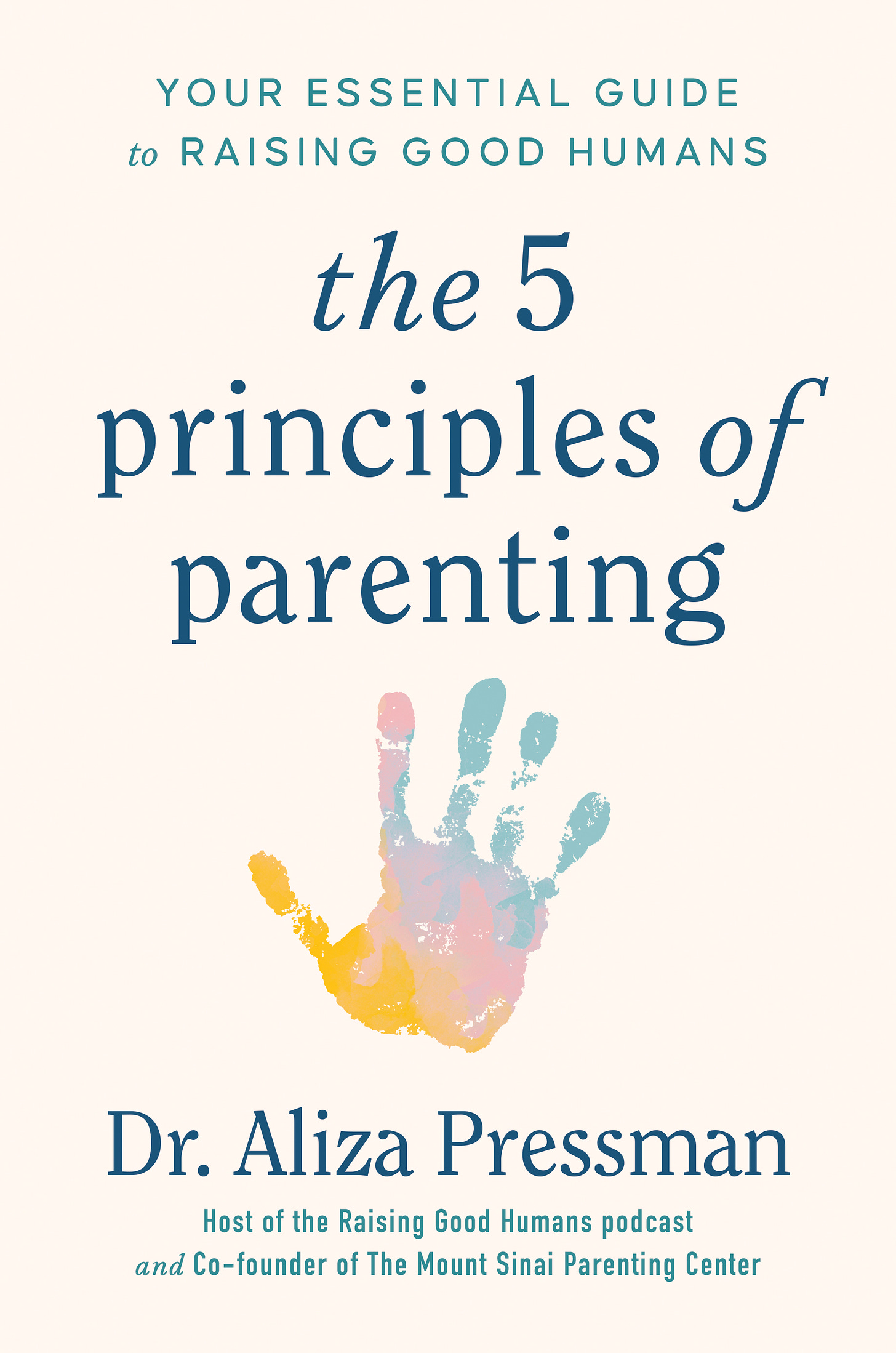Thanks for reading Raising Good Humans on Substack! This week ONLY, my first book, The 5 Principles of Parenting: Your Essential Guide to Raising Good Humans, is part of a Target Circle deal. You can buy 2, get 1 free on select books, movies, and games. The sale ends on 3/29, so use this link to take advantage TODAY.

The transition from parenting a child to parenting a young adult is a time of excitement, anxiety, and a whole lot of letting go. We've spent years guiding, nurturing, and protecting our children, and now we're tasked with helping them step into independence. This transition requires a delicate balance of offering support while allowing them to forge their own path.
One of the biggest challenges as a parent is finding the right way to offer advice without sounding like a lecture. Our young adults are eager to assert their independence, and lengthy, unsolicited advice can easily fall on deaf ears. In this week’s episode of Raising Good Humans Podcast Gretchen Rubin, author of the new book The Secrets of Adulthood: Simple Truths for Our Complex Lives, offers us concise, impactful truths — aphorisms, that reflect "tiny bites" of wisdom that can be more readily absorbed and reflected upon. These are planting seeds rather than delivering a sermon. For instance, instead of a lengthy explanation about time management, simply say, "What we do every day matters more than what we do once in a while." This leaves room for them to interpret and apply the wisdom in their own way.
A few of my favorites from this discussion:
It’s always important to emphasize to our young adults that despite all their new independence, and improving reasoning, they are still learning and growing. They will make mistakes, and that's okay. In fact, it's essential. To capture this, Gretchen references the proverb, "A stumble may prevent a fall" to help explain how experiencing consequences of our choices, within reasonable boundaries, is a powerful learning tool. It's tempting to swoop in and fix everything, but often, the most valuable lessons are learned through personal experience. Our role shifts to being a supportive sounding board, and a safe space where they can process their experiences and learn from them.
I also love the idea that self-acceptance and high expectations are two sides of the same coin. We want our young adults to accept who they are, with their strengths and weaknesses, while also encouraging them to strive for their best. Gretchen writes, "Accept yourself and also expect more from yourself" as a powerful aphorism that captures this balance. It's about fostering self-compassion while also encouraging growth and pushing beyond comfort zones. As parents, we can model this by accepting our own imperfections, and continuing to learn and grow ourselves.
The aphorism "We care for many people we don't particularly care for" highlights a crucial social reality our children will encounter. It reminds us that while we nurture deep, personal connections with those we love, we also interact with a wider world of acquaintances, colleagues, and community members. Navigating these relationships with kindness and respect, even when we may not need to care for others, is essential for us to live in a world where we foster the skills we want for humankind.
As we work to help our young people recognize that they are individuals, with their own unique ways of navigating the world, offering the aphorism, "The bird, the bee, and the bat all fly, but they use different kinds of wings" highlights the diversity of approaches to achieving a goal. What works for one person may not work for another. Our role is to support their individual journey, not to impose our own methods. This means allowing them to make choices that might be different from what we would do, trusting that they will find their own way.
Motivation is another area where our expectations might need adjusting. "Don't expect to be motivated by motivation." Sometimes, we assume that if someone wants something badly enough, they will automatically be motivated to do the work. However, this isn't always the case. As we talked about previously with Gretchen’s "Four Tendencies" framework, people respond to motivation in different ways. Some thrive on inner expectations, while others need outer accountability. Understanding your young adult's tendencies can help you provide the right kind of support.
Finally, one of the most important things we can do is to listen more than we talk. Though communication is also crucial during this transition, less is often more (I’m working on it!). Instead of lengthy explanations or lectures, try using fewer, more impactful words. I love the example of saying "Shower" instead of a series of questions about when they plan to shower. This approach respects their autonomy and avoids nagging. It's about communicating clearly and concisely, trusting that they will hear and process what you've said. Gretchen also highlights how sometimes a wordless act can speak volumes. For example, simply leaving an empty container on the counter for them to take the steps needed to refill it.
Our young adults need to feel heard and understood. When they share their thoughts and feelings, resist the urge to immediately offer advice or solutions. Instead, simply listen and validate their experiences. This creates room for them to process their emotions and figure things out on their own. It also strengthens your relationship and builds trust.
A quick reminder to buy my first book, The Five Principles of Parenting, and write a review from wherever you order. Reviews really help to get the book noticed, and to spread the word. Please especially rate and review any books purchased on Amazon (it shockingly really, really matters!). Also, when you receive the book, snap a quick pic with it and post on social media. Share one thing you love about it and help me to get more copies into the hands of parents in your community. Tell a friend about the book, or about something you found helpful in the book. Parents look to each other for advice, and I’d love to be a part of the support you pass on to your loved ones.






Love this discussion. In what specific ways can parents effectively discern the line between providing supportive wisdom and allowing their young adults the space to learn from their own experiences, particularly when considering the potential consequences of those experiences?